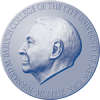-
Posts
123 -
Joined
-
Last visited
-
Days Won
1
Reputation Activity
-
 hesadork got a reaction from rnk in Let's Talk Debt
hesadork got a reaction from rnk in Let's Talk Debt
Great question rnk. I think a good rule of thumb (and advice I was given that I'm grateful for): $0 non-ed-related (ie, credit card, auto) debt, 3-6 months living expenses.
-
 hesadork got a reaction from Justice4All in Teachers College's relationship with Columbia University
hesadork got a reaction from Justice4All in Teachers College's relationship with Columbia University
A degree from TC is a degree from Columbia. Full stop.
-
 hesadork got a reaction from StartingtheProcess83298353 in Picking the best degree for me?
hesadork got a reaction from StartingtheProcess83298353 in Picking the best degree for me?
At what stage in your educational career are you? If you're still in the first or second year of UG you may find that you figure it out just by taking more classes.
One route might be to do a research master's - e.g., the one-year MA in Social Sciences at U of Chicago (MAPSS), the two-year MS in Applied Social Research at CUNY-Hunter, etc. These kinds of programs would greatly sharpen the arrows in your research quiver and may give you the time/perspective to figure out 1) if you want a PhD; and 2) if you do want a PhD, which discipline will suit you best.
Of course, if you do decide you'd like to enter the professoriate I'd also strongly encourage you to think about employability. Of the fields you've mentioned a doctorate in marketing would make you more employable than a doctorate in the other fields, for example.
Hope that helps!
-
 hesadork got a reaction from UrbanMidwest in Decisions 2013?!
hesadork got a reaction from UrbanMidwest in Decisions 2013?!
Edstudies, you really can't go wrong either way. The subtext of your posts is that you want to be at Stanford. So I say go with your gut.
The HE/K-12 integration does not strike me as a big deal. The reality is that some number of classes at Ed schools (e.g., Org Behavior, Rsch Methods) are cross-listed such that students in many different programs have access to them. The OB class I took as part of my HEA master's was open to folks in HE, K-12 and public/nonprofit admin. It really didn't matter, and I enjoyed having to operate outside of my HE comfort zone.
In my humble opinion, some people make too much of the practice vs. policy vs. research distinction at the master's level -- especially in one year programs. The reality is that you're going to get exposed to all three irrespective of how a program markets itself, and any differences are of degree not kind. Strong performance at either Harvard or Stanford is going to stand you in very good stead for eventual doctoral admission regardless of their 'focus.'
Best of luck.
-

-
 hesadork got a reaction from Levon3 in Is HGSE master's worth $60k debt?
hesadork got a reaction from Levon3 in Is HGSE master's worth $60k debt?
I am really enjoying (probably not the right word, but you get my drift) this thread.
My story is that I attended a small liberal arts college and graduated in '97 with about $55k in debt (translates to roughly $80k in current dollars). I got a relatively well-paying job out of undergrad...except for the fact that it was located in Manhattan (amazing place but obviously v high cost of living). Those first few years were just really, really hard. I made it work (commuted from Jersey, had multiple roommates, rarely ate out, never took cabs)...but the need to make those monthly payments PROFOUNDLY limited my career options. Basically I had to focus on salary almost exclusively as opposed to fit, culture, work-life balance, personal interest, location etc. And it effectively took grad school off the table for the entire time I was paying the loans back.
Flash forward to deciding about grad school for my master's; I was choosing between two distinguished private institutions (big names, high cost, little aid) or a really inexpensive in-state public. For me the choice was clear: the in-state public. I won a fellowship and a cash award at graduation, and because of the more flexible structure of the program (common at many public universities) I was able to continue working part-time while in school. When all was said and done I paid about $10,000 (all in: tuition, fees, books, commuting to campus) out of pocket during the two year program. I have not once regretted the choice.
The biggest mistake I see students, mentees, advisees make is underestimating the impact of loan debt on your life, your choices and very much on your psychology. You'll be living with the choices you make now for a very long time where debt is concerned. It's a personal choice, of course, but I think some times people are ill-equipped to understand what's really at stake when they are relatively early in life/careers.
Best of luck to everyone navigating this!
-
 hesadork got a reaction from Vulpix in Is HGSE master's worth $60k debt?
hesadork got a reaction from Vulpix in Is HGSE master's worth $60k debt?
I am really enjoying (probably not the right word, but you get my drift) this thread.
My story is that I attended a small liberal arts college and graduated in '97 with about $55k in debt (translates to roughly $80k in current dollars). I got a relatively well-paying job out of undergrad...except for the fact that it was located in Manhattan (amazing place but obviously v high cost of living). Those first few years were just really, really hard. I made it work (commuted from Jersey, had multiple roommates, rarely ate out, never took cabs)...but the need to make those monthly payments PROFOUNDLY limited my career options. Basically I had to focus on salary almost exclusively as opposed to fit, culture, work-life balance, personal interest, location etc. And it effectively took grad school off the table for the entire time I was paying the loans back.
Flash forward to deciding about grad school for my master's; I was choosing between two distinguished private institutions (big names, high cost, little aid) or a really inexpensive in-state public. For me the choice was clear: the in-state public. I won a fellowship and a cash award at graduation, and because of the more flexible structure of the program (common at many public universities) I was able to continue working part-time while in school. When all was said and done I paid about $10,000 (all in: tuition, fees, books, commuting to campus) out of pocket during the two year program. I have not once regretted the choice.
The biggest mistake I see students, mentees, advisees make is underestimating the impact of loan debt on your life, your choices and very much on your psychology. You'll be living with the choices you make now for a very long time where debt is concerned. It's a personal choice, of course, but I think some times people are ill-equipped to understand what's really at stake when they are relatively early in life/careers.
Best of luck to everyone navigating this!
-
 hesadork got a reaction from naomi6 in Teachers College's relationship with Columbia University
hesadork got a reaction from naomi6 in Teachers College's relationship with Columbia University
A degree from TC is a degree from Columbia. Full stop.
-
 hesadork got a reaction from Edugy in Teachers College's relationship with Columbia University
hesadork got a reaction from Edugy in Teachers College's relationship with Columbia University
A degree from TC is a degree from Columbia. Full stop.
-
 hesadork got a reaction from MAC2809 in Teachers College's relationship with Columbia University
hesadork got a reaction from MAC2809 in Teachers College's relationship with Columbia University
A degree from TC is a degree from Columbia. Full stop.
-
 hesadork got a reaction from MAC2809 in Teachers College's relationship with Columbia University
hesadork got a reaction from MAC2809 in Teachers College's relationship with Columbia University
The affiliation between TC and Columbia is complicated and is at least in part an artifact of political and legal and historical quirks that no one cares about at this point. It is an arrangement that highly unique in post-secondary education.
They are the ed school affiliated with Columbia. They will always be the ed school affiliated with Columbia. "Teachers College, Columbia University" is the accepted convention as to how to represent the name of the institution.
As to hiring committees: opinions about the quality of TC vary widely, but I would argue that has little to do with TC's relationship to Columbia. There are other schools in the Columbia universe that have equally up-and-down reps (SIPA, Arts)...regardless of the legal structures of their relationships.
-
 hesadork got a reaction from Edugy in Teachers College's relationship with Columbia University
hesadork got a reaction from Edugy in Teachers College's relationship with Columbia University
The affiliation between TC and Columbia is complicated and is at least in part an artifact of political and legal and historical quirks that no one cares about at this point. It is an arrangement that highly unique in post-secondary education.
They are the ed school affiliated with Columbia. They will always be the ed school affiliated with Columbia. "Teachers College, Columbia University" is the accepted convention as to how to represent the name of the institution.
As to hiring committees: opinions about the quality of TC vary widely, but I would argue that has little to do with TC's relationship to Columbia. There are other schools in the Columbia universe that have equally up-and-down reps (SIPA, Arts)...regardless of the legal structures of their relationships.
-
 hesadork reacted to ZeChocMoose in Fall 2016 Applicants
hesadork reacted to ZeChocMoose in Fall 2016 Applicants
Actually, higher ed is one of those great fields where there are a good number of quality programs that fully funded their master's students by offering them assistantships. These assistantships* are (usually) part-time staff member positions in an office on campus. A good assistantship offers you tuition remission, guaranteed salary, and healthcare. It is been over 10 years (!) since I applied to master's programs, but when I was going through the process the places that fully funded their master's students were: University of Connecticut, University of Vermont, Ohio State, University of Maryland, Bowling Green, Penn State, and Michigan State. And I am sure a bunch others -- I was only looking at East coast and Midwest schools at the time.
*It gets a little bit confusing because some programs call a part-time job on campus - an "assistantship" when they are not offering any of the benefits of an assistantship i.e. no tuition remission, healthcare, or guaranteed salary. Instead, I like to think of these part-time jobs as paid "internships" because they only offer an hourly wage that can range a fair amount depending on the job. So you will get the experience which is great, but you won't get the great financial benefits of a true assistantship which is unfortunate.
NASPA (an organization for student affairs professionals if you are not familiar) has a search feature on their website: http://apps.naspa.org/gradprograms/search.cfm that you can click off master's program and "assistantships" under the financial aid options and it will give you a list of programs that meet your criteria. That being said some programs say they have an "assistantship," but it is more of an internship (as mentioned above) so you'll want to independently verify the ones that are listed to make sure they are true assistantships.
I think there are a lot of different pathways you can take to make you a competitive applicant. In terms of picking a good master's higher ed program that will prepare you -- I always like to first look at the curriculum to make sure you are at least being introduced to statistics and research methods. Since PhD programs are all about the research, in your master's program -- you'll want to take ideally three classes: a class on statistics, a class on research design, and class on qualitative methods.
You'll also want to know what is the culminating experience of the program. Is it a comprehensive exam, a capstone paper, or a thesis? Or is there no culminating experience? Just classes, internship component, and you are done. A comprehensive exam and/or a thesis/capstone paper are more aligned with what you'll do in a PhD program so you might want to lean towards those programs instead of just straight classes programs.
Also -- since you know which area you want to study, go to programs where the faculty study the topics that you are interested in and try to get involved in research with them. Some programs make it harder than others for their master's students to get involved in research -- but you can always reach out to current master's students and ask.
Since SHIP is your dream school -- see if they have profiles of their PhD students so you can take a look at where these students did their master's. I know in my program, we have some limited profiles of PhD students who chose to have their information displayed so prospective students can reach out to them. If SHIP doesn't have profiles, you could also search LinkedIn for SHIP PhDs and read their pages to get a sense of their experience and where they went for their master's degree. Also, you could always contact SHIP and ask what makes a competitive PhD applicant to their program and see what their recommendations are for good higher ed master's programs.
Good luck!
-
 hesadork got a reaction from gaillardsghost in Teachers College's relationship with Columbia University
hesadork got a reaction from gaillardsghost in Teachers College's relationship with Columbia University
The affiliation between TC and Columbia is complicated and is at least in part an artifact of political and legal and historical quirks that no one cares about at this point. It is an arrangement that highly unique in post-secondary education.
They are the ed school affiliated with Columbia. They will always be the ed school affiliated with Columbia. "Teachers College, Columbia University" is the accepted convention as to how to represent the name of the institution.
As to hiring committees: opinions about the quality of TC vary widely, but I would argue that has little to do with TC's relationship to Columbia. There are other schools in the Columbia universe that have equally up-and-down reps (SIPA, Arts)...regardless of the legal structures of their relationships.
-
 hesadork reacted to ZeChocMoose in Master's admits - where are you going?
hesadork reacted to ZeChocMoose in Master's admits - where are you going?
Congrats, JBums! Glad to hear that this cycle worked out for you.
-
 hesadork reacted to JBums1028 in Master's admits - where are you going?
hesadork reacted to JBums1028 in Master's admits - where are you going?
Hello! I'm planning on attending Kent State University for their Master's in Higher Education Administration. I was offered a full tuition + stipend assistantship position. It was the only school I was offered a GA at, so not a difficult choice but luckily it was one of my top choice positions. Congratulations to everyone on your acceptances/offers!
-
 hesadork got a reaction from WinterSolstice in Unexpected Second-Round Funding from SIPA = DILEMMA
hesadork got a reaction from WinterSolstice in Unexpected Second-Round Funding from SIPA = DILEMMA
It's not the fact that "everyone is probably as over this decision" as you are that should make you feel embarrassed.
It's the fact that you're sitting on scholarship money at these institutions that could otherwise have really helped someone, or could have changed their decision. Just like the "unexpected 2nd round funding from SIPA" changed your calculus.
And that's just selfish. And shameful. And sh+tty.
Either put on your big girl boots and pull the trigger or make a date with the Karma gods. Your choice.
-
 hesadork reacted to ZeChocMoose in Freaking out (Higher Ed/Student Affairs)
hesadork reacted to ZeChocMoose in Freaking out (Higher Ed/Student Affairs)
I am assuming you are applying to master's programs?
If you are straight from undergrad and you are applying to top tier programs that fund their applicants - you will be competing with a lot of people and not having full-time work experience is going to be seen as a negative. If you are applying to programs that assume that you'll pay for most of your education and you are not getting acceptances, I would assume it might have to do with either your SOP or your letters of rec as your GPA is good and GREs don't tend to be weighted too heavily in higher ed programs.
But honestly - it's seems a bit too early to tell. You still have 2 apps pending. I would distract myself as much as possible while waiting for the decisions.
If those apps aren't successful - then it might be a blessing in disguise. You'll be able to apply for full-time positions in higher ed which will give you the necessary background to make the most out of your higher ed master's and will give you some savings (hopefully!) to help supplement your income for when you do decide to go back to school.
-
 hesadork reacted to JBums1028 in Schools that don't follow the ACPA April 15th guideline- Advice?
hesadork reacted to JBums1028 in Schools that don't follow the ACPA April 15th guideline- Advice?
Thanks for the advice everyone! I'll keep you posted with an update about what's going on. Right now I'm just trying to not stress about it.
-
 hesadork got a reaction from michigan girl in Higher Education masters programs with funding?
hesadork got a reaction from michigan girl in Higher Education masters programs with funding?
FWIW, I think it's a mistake to get caught up in perceptions of reputation when we're talking about master's degrees in education, which are professional degrees intended to position you for entry/mid-level work experience. (And for which there are no rankings!) Having been a hiring manager for more than a decade across three institutions, I can tell you -- reputation really doesn't matter. And I agree with MichiganGirl that this field tends to function regionally in hiring and professional development opportunities. Focusing on length of program, required vs elective coursework, internship opportunities and funding will stand you in far better stead than focusing on institutional reputation.
Doctoral is a different story: sub-field rankings matter a lot.
-
 hesadork got a reaction from invicta in Education policy grad programs and careers
hesadork got a reaction from invicta in Education policy grad programs and careers
Is you interest in ed policy or in curriculum/learning & instruction? The substance of your post suggests the latter, but you start it and end it talking about policy.
-
 hesadork got a reaction from rising_star in Funding/assistantship for higher ed masters programs(Stanford, Michigan, Harvard, Vanderbilt)
hesadork got a reaction from rising_star in Funding/assistantship for higher ed masters programs(Stanford, Michigan, Harvard, Vanderbilt)
"Need-based" in terms of graduate financial aid is a euphemism for "loans."
-
 hesadork got a reaction from ZeChocMoose in Funding/assistantship for higher ed masters programs(Stanford, Michigan, Harvard, Vanderbilt)
hesadork got a reaction from ZeChocMoose in Funding/assistantship for higher ed masters programs(Stanford, Michigan, Harvard, Vanderbilt)
"Need-based" in terms of graduate financial aid is a euphemism for "loans."
-
 hesadork got a reaction from Fleet23 in Change in Interests
hesadork got a reaction from Fleet23 in Change in Interests
My strong advice would be to seek full-time employment in higher ed (in your case, in admissions) prior to graduate school. It will give you time to decompress from undergrad, obtain practical experience and get a better sense of what you want your career to look like. It will also make your grad school experience much richer, since master's degrees in HE/SA take a very practical, applied approach.
You may also find that admissions isn't a good fit or that your future isn't in higher ed. Far better to figure that out BEFORE investing in a graduate program.
Your undergrad major is irrelevant.
-
 hesadork reacted to juilletmercredi in Selecting Schools on "Fit"
hesadork reacted to juilletmercredi in Selecting Schools on "Fit"
I actually don't see a problem with that, but I am also of the opinion that one should be aiming for application based upon fit and not so much based upon ranking. If you have a great file, it will all come down to your work and whether or not you fit in. You also have to ask yourself whether you want to attend any program that will admit you, or whether you really want to do a specific kind of work, or whether you are willing to make compromises on some areas. For example, are you willing to work on a secondary area of interest for 5-8 years if you get into a lower-ranked school, just for the opportunity to go somewhere next year?
I think in most programs, students have one PI - maybe two, if they have interdisciplinary interests. I am in an interdisciplinary/joint program, so I have two advisors (one in each department). The point is to have a choice of at least 2-3 PIs so in case one doesn't work out - she leaves, dies, has a personality mismatch with you, runs out of money, etc. - you can migrate to someone else and still complete your PhD. I think it's okay, though, to apply to a place that has one person that you are really excited about and another person you're like lukewarm about but wouldn't mind working with. I would have described my current advisor that way had I even seen him on the website, but not only did his interests listed on the website not accurately reflect the range of interests he holds (our interests are actually MUCH more similar than they initially appeared), but I discovered that I really liked the field in which he worked and my own interests shifted a bit in graduate school. Plus, he's such an excellent mentor/adviser personality-wise and work-wise that it was totally worth it.










